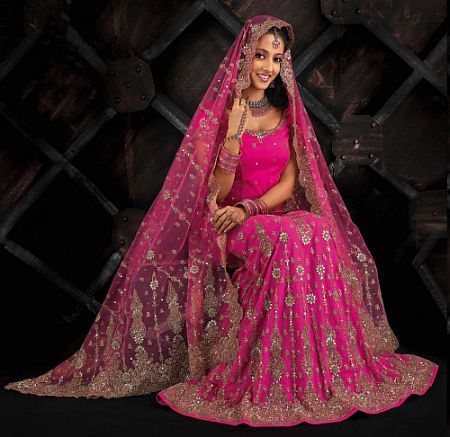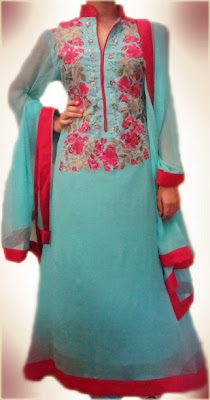Pakistani Dress definition
Source(Google.com.pk)Dress making
Pattern making
Embroidery
Draping
Using accessories on the cloth
Sketching
Digital fashion
History of costumes
Knit design and technology
Weave design
Printing technology
Besides starting your own business you can get jobs in various organizations like
Several export houses,
Garment store chains,
Textile mills,
Leather companies,
Boutiques,
Fashion show organizers,
Jewelry houses and media houses recruit professionals,
These are the present job options for those who are interested in a career in fashion designing. The fashion designers work as Research & Development, Design management, Material and Fabric sourcing, Merchandising, and Coordination with Product promotional activities. Besides these you can always work for yourself by creating your own recognition in the market. Therefore career in fashion and dress designing is proved to be a favorable, profitable and worthy career option for you.
The proper word and spelling of the dress is SHALWAR KAMIZ OR QAMIZ not Salwar kamiz which used only by non urdu, non pashto speaking inhabitants of India. The word itself is of Pashto origin and is pronounced with a voicles ALveopalatal "SHHHHH" sound not a voiceless Alveoloar "SS" sound. Please let the correctons stand. Also if any one can change the Main title spelling to Shalwar kamiz that would be great as well. But Salwar as an alternative specific geographical pronounciation should be indeed mentioned.
Your opinion is welcome, but the spelling Salwar Kamiz is more common. The proverbial google test reveals 100 times more hits (1.2 Million vs 13,000) for Salwar Kamiz as compared to Shalwar Qamiz. So, according to Wikipedia convention, this article is correctly using the spelling. You might look above for more discussion on the topic. Dear Nagib, From whence is the spelling more common? First off that is a totaly irrelevant thing. The proper pronounciation does not depend upon how many people pronounce a certain thing some way but on the speakers of langauge for whom it is the mother tongue. And in the least it should be desgnated as the main pronounciatoin before geographical alterntive adaptations are considered. Even so Google returns more than double the hits for shalwar kamiz than salwar kamiz i:e 1.47 million vs. 684k. But this is not by any stretch any criteria or method to pick and choose terms God forbid. Unless one wants a comic releif. I am changing the article back to the more accurate form. Please donot change th article lest I report you. Please feel free to convey as to why Salwar Kamiz be the main spelling. omerlivesOmerlives
I changed everything back. Please don't be silly. If encyclopedia users want to find out about salwar kamiz, they are going to type in the term that they know. In language, majority rules -- and in this case, salwar kamiz has become an English word. You can spell the word as you like in the Urdu Wikipedia, if there is one, but this is the English Wikipedia and we use the terms that are the most common in English.
I agree with Zora. Regarding google's results, did you really use google and found out "Shalwar Kamiz" gives more results? Because right now, I checked back, and "Shalwar Kamiz" returns 148,000 results whereas "salwar kamiz" returns 1.2 million results. The point is, using the more common term is a tradition in wikipedia, and that's what is being applied here. It is not something like misspelling of a south asian word by non-south-asians ... rather the usage of a more common spelling as used in the region where salwar kamiz is prevalent.Sorry guys, unsound arguments. First offs in most dictionaies the word appears as Shalwar along with mentioning that it is of udu/persian origin (which infact isn't quite true as it is Pushto albeit of the Iranian family).Secondly, just like a variety of urdu word are mispronounced by non urdu speakers in India such as the urdu letters and words begining with the voiceless velar fricative "kh" as in khan, khun, khuda are pronounced by hindi speakers or indians in general as an aspirated voiceless velar plosive like Kahn, kuhn and so forth. This does not make it right or acurate.Let me give you a simple example. Majority of the muslims in the islamic world are overwhelmingly non arab, hence numerically the majority pronounced the word ramadan as ramzan. This does not make it right nor acceptable as the main pronounciation. The english equivalent tries to be quite faithful to the original arabic "duad" as Ramadan.The dress is associated with the muslims and the culture of afghan, urdu, indo-persian. Just because in UK there are many indian expatriats who have popularized salwar does not mean that it becomes the original or conventional pronounciation or should be attempted to pass off as such on an encylcopdia. That is bias. Just as I am sure Ramzan might be more popular in UK instead of Ramadan.To write Salwar as the original or somehow more conventional pronounciation just because the some editors may pronounce the word that way is never a criteria for providing info on a subject. I am not against for mentioning Salwar as an alternative pronounciation because of linguistic reasons from certain ethnic groups, but that does not mean that the original word should be sidelined.And Nagib. Here are the two search links for google pertaining to Shalwar kamiz and Salwar Kamiz. And just like I said earlier this is a foolish criteria and is totally irrelavant when deciding upon this issue. Elseways i'll take the issue to a thid party administrator. I will not edit the article again until later tonight if I don't see any other alternative suggeston or pov s.
The shalwar kameez is the national dress of Pakistan and is worn by men and women in all four provinces Punjab, Sindh, Baluchistan, Khyber Pakhtoonkhwa and FATA in the country and in Azad Kashmir. Each province has its own style of wearing the Shalwar Qameez. Pakistanis wairclothes range from exquisite colors and designs to the type of fabric (silk, chiffon, cotton, etc.).
Pakistani fashion has flourished well in the changing environment of fashion world. Since Pakistan came into being its fashion has been historically evolved from different phases and made its unique identity apart from Indian fashion and culture. At this time, Pakistani fashion is a combination of traditional and modern dresses and it has become the cultural identification of Pakistan. Despite of all modern trends, the regional and traditional dresses have developed their own significance as a symbol of native tradition. This regional fashion is not static but evolving into more modern and pure forms.
The Pakistan Fashion Design Council based in Lahore organizes Fashion Week and Fashion Pakistan based in Karachi organizes fashion shows in that city. Pakistan’s first fashion week was held in November 2009.
Atif Aslam is a is a Pakistani pop singer and film actor.
Media and entertainment
Main articles: Cinema of Pakistan, Media of Pakistan, and Music of Pakistan
State-owned Pakistan Television Corporation (PTV) and Pakistan Broadcasting Corporation for radio were the dominant media outlets until the start of the 21st century. The end of PTV's monopoly led to a boom in electronic media, which gained greater political influence. There are now numerous private television channels that enjoy a large degree of freedom of speech.In addition to the national entertainment and news channels, foreign television channels and films are also available to most Pakistanis via cable and satellite television.There is a small indigenous film industry based in Lahore and Peshawar, known as Lollywood. While Bollywood films were banned from public cinemas from 1965 until 2008, they have remained important in popular culture.
Pakistani music ranges from diverse provincial folk music and traditional styles such as Qawwali and Ghazal Gayaki to modern forms fusing traditional and western music, such as the blend of Qawwali and western music by Nusrat Fateh Ali Khan. Pakistan has many famous folk singers, such as the late Alam Lohar, who is also well known in Indian Punjab. The arrival of Afghan refugees in the western provinces has stimulated interest in Pashto music, although there has been intolerance of it in some places.Literature
Muhammad IqbalMain article: Literature of Pakistan
Pakistan has literature in Urdu, Sindhi, Punjabi, Pushto, Baluchi, Persian, English and many other languages. Before the 19th century it consisted mainly of lyric and religious poetry, mystical and folkloric works. During the colonial age, native literary figures influenced by western literary realism took up increasingly varied topics and narrative forms. Prose fiction is now very popular
The national poet of Pakistan, Muhammad Iqbal, wrote poetry in Urdu and Persian and is read in Afghanistan, Iran, Indonesia, India and the Arab world. He was a strong proponent of the political and spiritual revival of Islamic civilisation and encouraged Muslims binding all over the world to bring about successful revolution.
Well-known representatives of contemporary Pakistani Urdu literature include Faiz Ahmed Faiz. Sadequain is known for his calligraphy and paintings. Sufi poets Shah Abdul Latif, Bulleh Shah, Mian Muhammad Bakhsh and Khawaja Farid are very popular in Pakistan. Mirza Kalich Beg has been termed the father of modern Sindhi prose.
The proper word and spelling of the dress is SHALWAR KAMIZ OR QAMIZ not Salwar kamiz which used only by non urdu, non pashto speaking inhabitants of India. The word itself is of Pashto origin and is pronounced with a voicles ALveopalatal "SHHHHH" sound not a voiceless Alveoloar "SS" sound. Please let the correctons stand. Also if any one can change the Main title spelling to Shalwar kamiz that would be great as well. But Salwar as an alternative specific geographical pronounciation should be indeed mentioned.
Your opinion is welcome, but the spelling Salwar Kamiz is more common. The proverbial google test reveals 100 times more hits (1.2 Million vs 13,000) for Salwar Kamiz as compared to Shalwar Qamiz. So, according to Wikipedia convention, this article is correctly using the spelling. You might look above for more discussion on the topic. Dear Nagib, From whence is the spelling more common? First off that is a totaly irrelevant thing. The proper pronounciation does not depend upon how many people pronounce a certain thing some way but on the speakers of langauge for whom it is the mother tongue. And in the least it should be desgnated as the main pronounciatoin before geographical alterntive adaptations are considered. Even so Google returns more than double the hits for shalwar kamiz than salwar kamiz i:e 1.47 million vs. 684k. But this is not by any stretch any criteria or method to pick and choose terms God forbid. Unless one wants a comic releif. I am changing the article back to the more accurate form. Please donot change th article lest I report you. Please feel free to convey as to why Salwar Kamiz be the main spelling. omerlivesOmerlives
I changed everything back. Please don't be silly. If encyclopedia users want to find out about salwar kamiz, they are going to type in the term that they know. In language, majority rules -- and in this case, salwar kamiz has become an English word. You can spell the word as you like in the Urdu Wikipedia, if there is one, but this is the English Wikipedia and we use the terms that are the most common in English.
I agree with Zora. Regarding google's results, did you really use google and found out "Shalwar Kamiz" gives more results? Because right now, I checked back, and "Shalwar Kamiz" returns 148,000 results whereas "salwar kamiz" returns 1.2 million results. The point is, using the more common term is a tradition in wikipedia, and that's what is being applied here. It is not something like misspelling of a south asian word by non-south-asians ... rather the usage of a more common spelling as used in the region where salwar kamiz is prevalent.Sorry guys, unsound arguments. First offs in most dictionaies the word appears as Shalwar along with mentioning that it is of udu/persian origin (which infact isn't quite true as it is Pushto albeit of the Iranian family).Secondly, just like a variety of urdu word are mispronounced by non urdu speakers in India such as the urdu letters and words begining with the voiceless velar fricative "kh" as in khan, khun, khuda are pronounced by hindi speakers or indians in general as an aspirated voiceless velar plosive like Kahn, kuhn and so forth. This does not make it right or acurate.Let me give you a simple example. Majority of the muslims in the islamic world are overwhelmingly non arab, hence numerically the majority pronounced the word ramadan as ramzan. This does not make it right nor acceptable as the main pronounciation. The english equivalent tries to be quite faithful to the original arabic "duad" as Ramadan.The dress is associated with the muslims and the culture of afghan, urdu, indo-persian. Just because in UK there are many indian expatriats who have popularized salwar does not mean that it becomes the original or conventional pronounciation or should be attempted to pass off as such on an encylcopdia. That is bias. Just as I am sure Ramzan might be more popular in UK instead of Ramadan.To write Salwar as the original or somehow more conventional pronounciation just because the some editors may pronounce the word that way is never a criteria for providing info on a subject. I am not against for mentioning Salwar as an alternative pronounciation because of linguistic reasons from certain ethnic groups, but that does not mean that the original word should be sidelined.And Nagib. Here are the two search links for google pertaining to Shalwar kamiz and Salwar Kamiz. And just like I said earlier this is a foolish criteria and is totally irrelavant when deciding upon this issue. Elseways i'll take the issue to a thid party administrator. I will not edit the article again until later tonight if I don't see any other alternative suggeston or pov s.
Pakistani Dress

Pakistani Dress

Pakistani Dress

Pakistani Dress

Pakistani Dress

Pakistani Dress

Pakistani Dress

Pakistani Dress

Pakistani Dress

Pakistani Dress

Pakistani Dress

Pakistani Dress

Pakistani Dress

Pakistani Dress

Pakistani Dress

Pakistani Dress

Pakistani Dress

Pakistani Dress

Pakistani Dress

Pakistani Dress

No comments:
Post a Comment